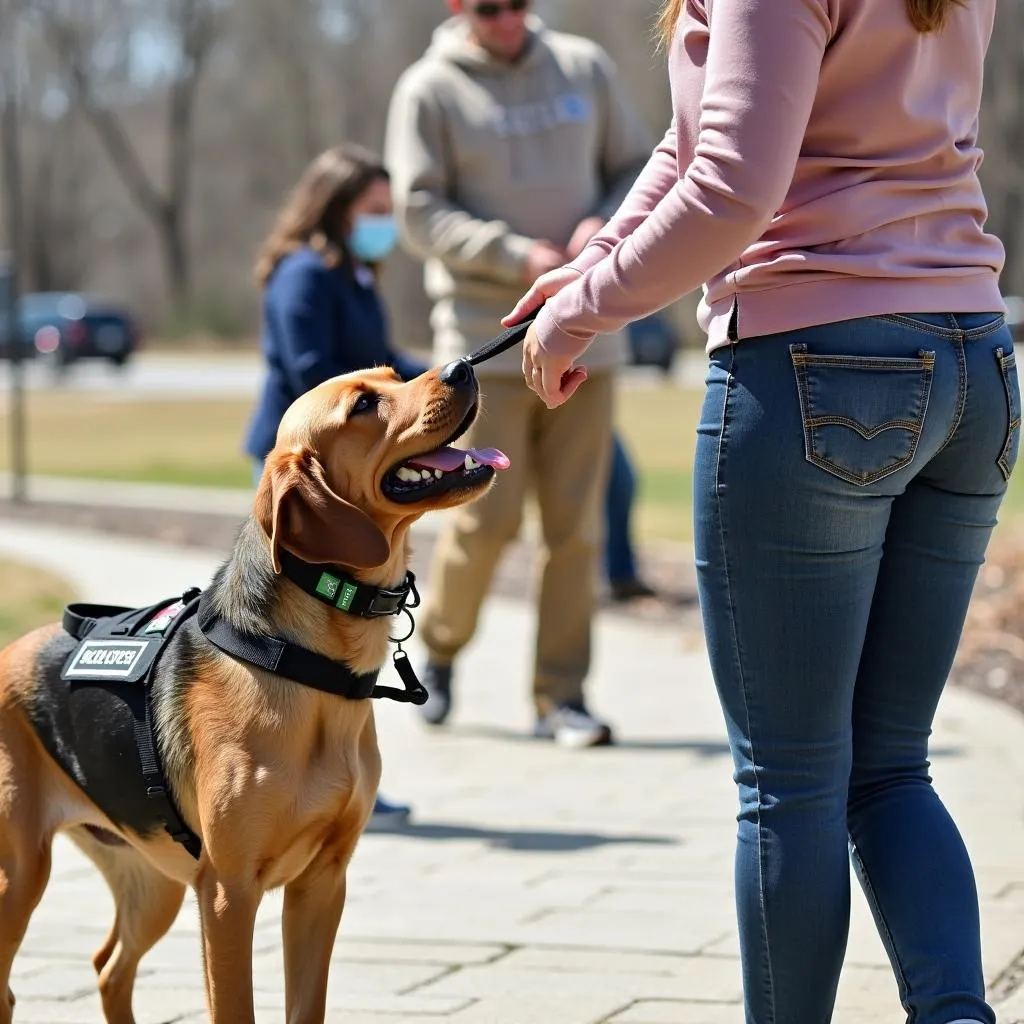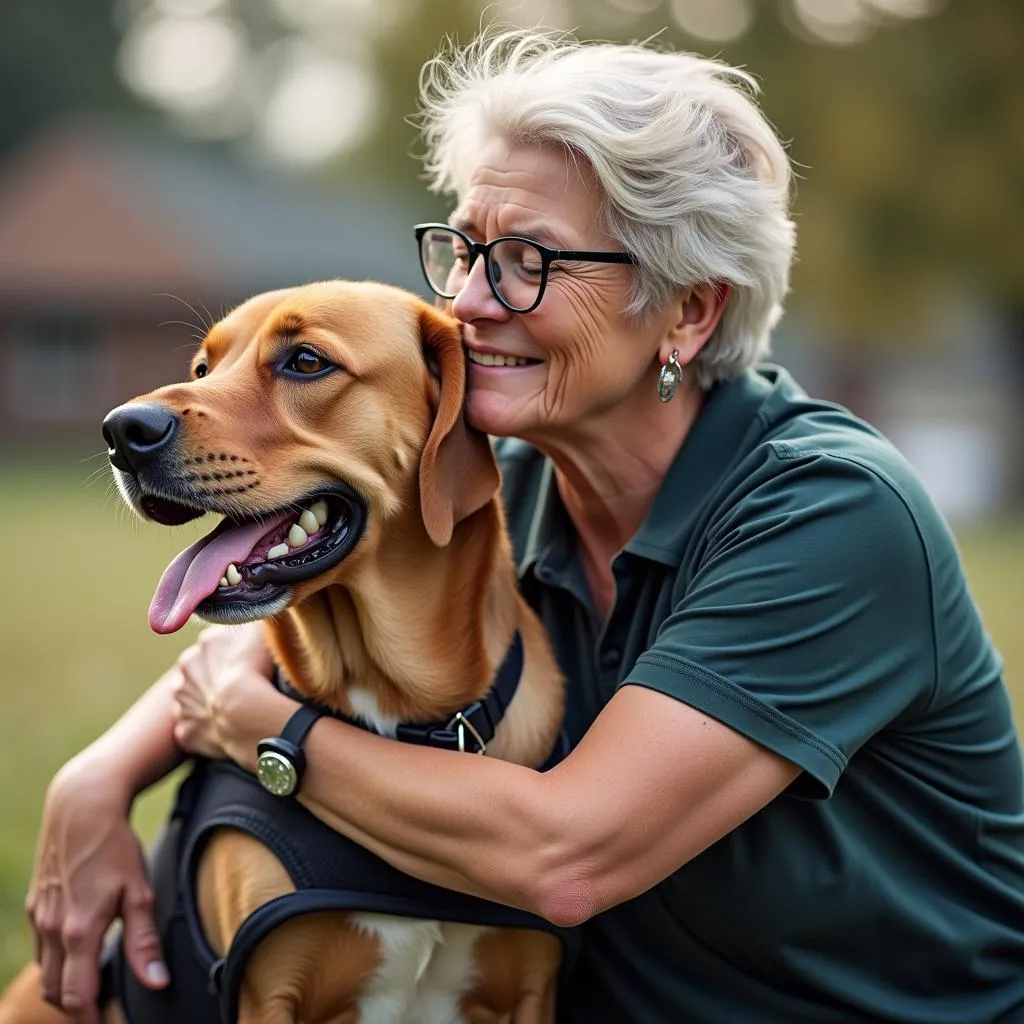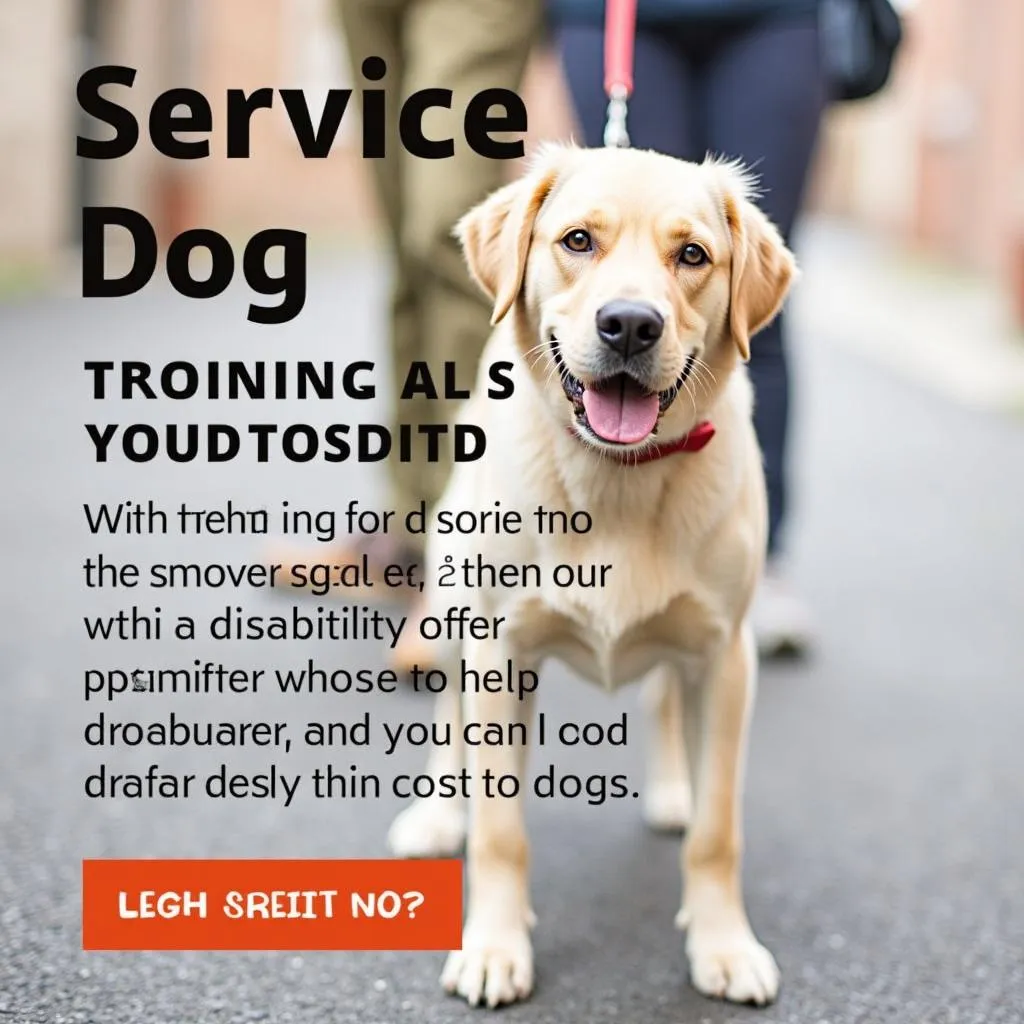“Helping hands are always welcome, especially when you need them the most.” This saying perfectly captures the essence of service dogs, who are trained to provide invaluable assistance to people with disabilities. Today, we’re diving into the fascinating world of service dog training for those with Postural Orthostatic Tachycardia Syndrome (POTS), a condition that affects blood circulation and can lead to dizziness, fainting, and other challenges.
Understanding POTS and Service Dogs
POTS is a condition that affects the autonomic nervous system, which controls involuntary bodily functions like heart rate and blood pressure. When someone with POTS stands up, their heart rate often increases dramatically, causing dizziness and lightheadedness.
Service dogs trained for POTS can be a lifeline, providing critical support and assistance in managing the symptoms. These furry companions can learn to perform tasks such as:
- Retrieving items: Fetching medication, water bottles, or other essential items that the person with POTS may need.
- Providing pressure therapy: Applying gentle weight to reduce dizziness and anxiety.
- Alerting for changes in symptoms: Noticing early signs of a POTS episode and alerting the person with a trained response, like a nudge or a bark.
- Providing stability and support: Acting as a physical support for the person with POTS, especially when they feel unsteady.
The Journey to Training a POTS Service Dog
Training a service dog for POTS is a dedicated process that requires time, patience, and consistency. It’s not a quick fix, but the rewards are immeasurable.
Choosing the Right Dog: Finding Your Furry Partner
First, you need to choose the right dog for the job. Some breeds are known for their temperament, intelligence, and trainability, making them well-suited for service dog training. Popular breeds include:
- Labrador Retrievers: Known for their intelligence, eagerness to please, and gentle nature.
- Golden Retrievers: Similar to Labs, they are highly trainable, patient, and affectionate.
- Poodles: Known for their intelligence, trainability, and hypoallergic coat.
- German Shepherds: Intelligent, loyal, and capable of learning complex tasks.
However, remember that every dog is an individual, and the best service dog for you will depend on your specific needs and lifestyle. It’s important to consider factors like temperament, energy level, and ability to adapt to different environments.
The Training Process: Building a Bond and Mastering Skills
Training a POTS service dog involves building a strong bond with the dog and teaching them specific tasks to assist the person with POTS. This may include:
- Basic obedience training: This forms the foundation for all other training. It involves teaching the dog basic commands such as “sit,” “stay,” “come,” “down,” and “heel.”
- Task training: This involves teaching the dog specific tasks to help with POTS symptoms, such as fetching items, providing pressure therapy, and alerting for changes in symptoms.
- Public access training: Teaching the dog to be well-behaved and calm in public settings, such as restaurants, stores, and transportation.
“It’s not just about teaching the dog commands,” says Dr. Mai, a renowned canine behaviorist in Ho Chi Minh City. “It’s about building a trusting relationship and understanding the nuances of the dog’s body language. A successful POTS service dog is a true partner, always attentive to their person’s needs.”
The Importance of Consistency and Positive Reinforcement:
Consistency is key in service dog training. The dog needs to learn what is expected of them, and this requires regular practice and reinforcement. Using positive reinforcement methods, like treats, praise, and playtime, is essential to motivate the dog and create a positive learning experience.
“Remember, the goal is to make training fun and rewarding for both you and your dog,” shares Ms. Linh, a certified service dog trainer from Hanoi. “When you approach training with patience and understanding, you’ll be amazed at the progress your furry friend can make.”
Tips for Training a POTS Service Dog:
- Start early: Begin training as early as possible to establish good habits and a strong bond.
- Keep it positive: Use positive reinforcement methods to motivate your dog and make training enjoyable.
- Be patient and consistent: It takes time and effort to train a service dog. Be patient, be consistent, and celebrate your progress along the way.
- Enroll in a reputable training program: Consider enrolling in a professional service dog training program. This will ensure that your dog receives high-quality training and meets the necessary standards.
- Seek guidance from experts: If you encounter challenges or have questions, consult with certified service dog trainers or veterinarians.
 Training classes for POTS service dogs
Training classes for POTS service dogs
The Benefits of a POTS Service Dog: A Life-Changing Partnership
A POTS service dog can offer a range of benefits, improving quality of life for individuals with POTS:
- Increased independence: Service dogs provide assistance with daily tasks, allowing people with POTS to live more independently and participate in activities they might not have been able to before.
- Reduced anxiety and stress: The companionship and support of a service dog can help reduce anxiety and stress, promoting emotional well-being.
- Enhanced safety: Service dogs can help prevent falls, alerting the person with POTS to potential hazards.
- Improved social interaction: Service dogs can help break down social barriers and encourage positive interactions with others.
“Having a POTS service dog has been life-changing,” shares Mr. Nam, a POTS patient living in Hanoi. “My dog, Luna, not only helps me with daily tasks, but she’s also my constant companion, always there to provide comfort and reassurance. She’s made a world of difference in my life.”
 A heartwarming image of a person with POTS hugging their service dog
A heartwarming image of a person with POTS hugging their service dog
Considerations for POTS Service Dog Training: A Holistic Approach
While service dogs can be incredibly helpful for people with POTS, it’s important to approach training with a holistic perspective:
- Consult with a doctor: Discuss your needs and goals with your doctor to ensure that a service dog is the right option for you.
- Consider your lifestyle: A service dog is a major commitment, so ensure you have the time and resources to care for one.
- Prepare for challenges: Training a service dog can be challenging, requiring patience, dedication, and financial resources.
 A group of people attending a service dog training seminar
A group of people attending a service dog training seminar
Finding a Reputable Training Program: Navigating the Path to Partnership
Finding a reputable service dog training program is essential. Look for programs that meet these criteria:
- Experienced trainers: The trainers should have extensive experience working with service dogs and understanding the needs of people with disabilities.
- Comprehensive training curriculum: The program should cover all aspects of service dog training, including basic obedience, task training, and public access training.
- Ethical practices: The program should use positive reinforcement methods and avoid harsh or aversive training techniques.
Conclusion: A Journey of Empowerment and Connection
Training a service dog for POTS is a journey of empowerment and connection. It requires dedication, patience, and a deep understanding of both the human and canine aspects of this partnership. With the right training and support, a POTS service dog can transform the lives of individuals with POTS, providing them with independence, companionship, and a sense of confidence that extends far beyond their daily tasks.
Are you ready to embark on this incredible journey? Contact us today to learn more about our resources and training programs for POTS service dogs. We’re here to support you every step of the way, helping you find the perfect furry friend to navigate your life with POTS.
For more information on POTS service dog training and resources, visit our website or contact our team. We’re committed to providing you with the knowledge and support you need to create a life-changing partnership.
Leave a Reply
You must be logged in to post a comment.